Ancestor worship and why we should revive it
 Ancestor worship, or the belief that your ancestors look after you and live among you, seems like a good kind of belief to me, when I consider the anonymity and general invisibility of the old and the dead in modern Australian society. Although money can sometimes buy you a big send-off, like the truly grandiose one for a big sports-mogul the other day, it may inspire resentment: "Seems kind of unfair," commented an elderly friend, "When you and I shall be forgotten, absent any fanfare."
Ancestor worship, or the belief that your ancestors look after you and live among you, seems like a good kind of belief to me, when I consider the anonymity and general invisibility of the old and the dead in modern Australian society. Although money can sometimes buy you a big send-off, like the truly grandiose one for a big sports-mogul the other day, it may inspire resentment: "Seems kind of unfair," commented an elderly friend, "When you and I shall be forgotten, absent any fanfare."
Ancestor worship in a small endogamous and sedentary (viscous) population keeps the dead alive and recycling as the living. It makes everyone important members of the tribe, never to be forgotten. Everyone knows each other and the dead cannot have been much different, so you feel as if you know them. They are a part of you. What the lives of ancestors many generations back may lose in detail, they gain in heroic stature and magic powers. They have their own spirit realm where they may be reached for consultation, using various rituals. As they grow up, individuals look in themselves for inherited skills and heroic tendencies that they know to exist in the tribe.
In 'modern' western settler states tribes are too dispersed for people to be able to remember their ancestors properly. Their direct experience of ancestors is usually limited to a couple of generations, not necessarily complete. The problem is that people in such societies no longer live in the same place as their ancestors, experiencing the same trees, animals, and sights of the same local environment, and the food and water it produces. They now live in recently constructed houses and apartments that have obliterated all the nature around them and all trace of the people who lived there, including their burial places. Our existences seem as fragile as the photographs and documents we retrieve from family-tree searches. Deceased blood relatives seem rootless in an abstract history full of strangers. The need to search for one's ancestral tribe remains strong nonetheless, as we see from people having DNA tests to try to get a vague idea of their origins, but all they get back is links to a hotchpotch of anonymous lost souls.
You can understand why people get so upset when a tree is cut down or an old building destroyed, when the park is paved over, or the bush where they grew up is destroyed, along with its wildlife. It's because we have deep instincts for roots, relatives, and for an intimate long-term tribal relationship with our local environment, which our lives once depended on and which they may again depend on.
Conveniently for capitalism, the yearning for one's lost tribe is easily displaced onto brand names, football teams, NGOs, employers, schools, political parties, temples, aged-care, and other institutions. Many such false tribes practice conditional acceptance, based on whether you are paid-up or not. Even cemeteries now dig you up after a few decades, if you don't pay their ransom. More and more of us go up in smoke these days, contributing to climate change and robbing the earth of our nutrients.
There is an old proverb that says that you can break a stick, but a bundle of sticks if very hard to break. Just imagine for a moment if we married second and more distant cousins, and inherited our land from each other - like the Rothchilds or the Windsors.[1] Some of us would not marry because we would run out of cousins, but we would all have a place. We would share our illustrious and villainous ancestors; the history of how they won and defended our land would inspire us. And when the developers came to build on our cemetery, we would fight them to the death. The very wealthy know this and found dynasties. By marrying their relations, they preserve land, assets and power within family and clan.
Australian society is however, increasingly disorganised by routines of lengthy commutes, and property and custody struggles following divorce. Families are geographically separated due to global employment opportunities and social drift. Suburban infill and housing insecurity resulting from large influxes into cities churn neighbourhoods so that we no longer have old neighbours and a sense of community. The cliche that "we are all migrants" has some truth to it, but in the ways mentioned, we are prevented from truly making Australia our home in the long term sense that would allow us a connection to our ancestors as fellow inhabitants of this place.
See also "Overpopulation: Endogamy,Exogamy and fertility opportunity theory."
NOTES
[1]On the Rothschild strategy for consolidating wealth by staying as a tight-knit clan: https://www.academia.edu/39626199/The_House_of_Rothschild.
The below is from another fascinating article by Adam Kuper, "Incest, cousin marriage, and the origin of the human sciences in nineteenth- century England, Past and Present, 2002: https://www.academia.edu/38993793/INCEST_COUSIN_MARRIAGE_AND_THE_ORIGIN_OF_THE_HUMAN_SCIENCES_IN_NINETEENTH-CENTURY_ENGLAND.
[...] Queen Victoria, a model of propriety, married her first cousin, Albert, her mother's brother's son. This was and remains a Hanoverian tradition. George I had married his father's brother's daughter, and George IV his father's sister's daughter.
George V and Elizabeth II carried on this tradition, both marrying second cousins. The tradition may be traced back to the Stuarts.
The parents of James I were first cousins, children of a half-sister and half-brother.25)
Love and marriage between cousins became a regular topic of novels in nineteenth-century England. In Mansfield Park (1814), Fanny married Edmund, her mother's sister's son. In Persuasion (1817), Charles Hayter similarly married his mother's sister's daughter, Henrietta Musgrave. In the same novel, Elizabeth Elliot dreams of a marriage with her cousin and her father's heir, William Elliot (apparently her second cousin in the male line), and he later woos her sister Anne. Any objections to these relationships had to do with such extraneous factors as the difference in status between Fanny and Edmund or Henrietta and Charles. There were similar marriages within Jane Austen's own family. Jane's brother Henry married his widowed cousin, Eliza de Feuillide, after Eliza had rejected his brother James.27 (Another of Jane Austen's brothers, Charles, married his dead wife's sister in 1820, albeit 'to general disapproval'.)Cousin marriages continued to feature regularly in English novels and plays to the end of the nineteenth century, without being represented as strange or problematic. As late as 1895, The Importance of Being Ernest ends with the happy discovery that Ernest and Gwendolen are cousins. His mother was not a handbag, or Miss Prism, but Lady Bracknell's sister. Since they were the children of two sisters, Lady Bracknell could have no objection to their marriage.
What the anthropologists were later to term sister exchange was also an established royal tradition. The Hanoverians were famous for it. In the nineteenth century it became a familiar practice in middle-class circles. The marriage of Charles Darwin to Emma Wedgwood was a case in point. Not only were they first cousins, but since Emma's elder brother, Josiah Wedgwood III, had married Charles's elder sister, Caroline, the two men were also exchanging sisters. The combination of marriage to first cousins with a propensity to sister exchange (or with the marriage of two brothers to a pair of sisters) meant that it was not uncommon in the next generation for double first cousins to marry. Darwin's father-in-law Josiah Wedgwood II and his brother John Wedgwood (themselves children of third cousins)married two sisters. In the next generation, John's daughter, Jessie, married Josiah's son, Henry Allen Wedgwood. She was his father's brother's daughter and also his mother's sister's daughter.
[...] Recent studies show that the incidence of first-cousin marriage was significantly higher in some British or British-derived population during the nineteenth century than George Darwin's statistic suggested. Men of Boston Brahmin families had a remarkably high level of close kin (mostly first-cousin) marriage from 1680 to 1859, averaging around 25 per cent, but climbing to 66.6 per cent in the middle of the eighteenth century. Sibling exchange was also common." Close-kin marriage was by no measure restricted to the elite. In the first half of the nineteenth century, 20 per cent of marriages among Protestant Northern Irish immgrants to the Midwest were with first cousins. Highland Scot migrants to New Zealand were also strikingly endogamous. What Maureen Molloy calls 'kin group endogamy' reached 70 per cent in some areas. Sibling exchanges were frequent, and 'it is quite common to find three siblings marrying two sibling cousins and a third cousin or cousin's cousin'. Molloy found genealogic evidence to show that this pattern preceded emigration, and argued that it was perhaps related to the imposition of British rule and population resettlement."


 Thirteen species of seabirds are declining off the coast of south-eastern Australia, a 17-year study by researchers at the Centre for Ecosystem Science at UNSW Sydney revealed. The species include iconic and globally threatened birds such as the enormous Wandering Albatross, as well as locally breeding Flesh-footed Shearwater. Pelagic citizen science data was used in this study.
Thirteen species of seabirds are declining off the coast of south-eastern Australia, a 17-year study by researchers at the Centre for Ecosystem Science at UNSW Sydney revealed. The species include iconic and globally threatened birds such as the enormous Wandering Albatross, as well as locally breeding Flesh-footed Shearwater. Pelagic citizen science data was used in this study.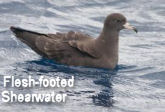
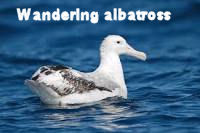
 Did you know that you cannot insure buildings over three stories high in Australia? On Sunday 16 June apartment owners and renters were locked out of a 122 unit apartment tower called
Did you know that you cannot insure buildings over three stories high in Australia? On Sunday 16 June apartment owners and renters were locked out of a 122 unit apartment tower called 
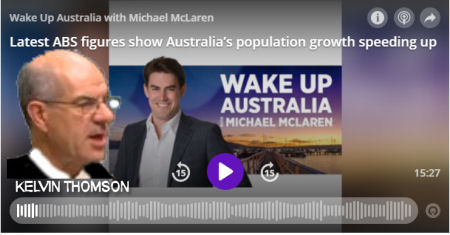
 "[US National Security Advisor] John Bolton is a kind of bureaucratic tape-worm. Try as you might, you can't expel him. He seems to live forever in the bowels of the federal agency, periodically reemerging to cause pain and suffering - but critically, somehow, never suffering himself. His life really is Washington in a nutshell: Blunder into obvious catastrophes again and again, refuse to admit blame, and then demand more of the same. That's the John Bolton life-cycle. In between administration jobs, there are always cushy think-tank posts, paid speaking gigs, cable news contracts. War may be a disaster for America, but for John Bolton and his fellow neocons, it is always good business." (Tucker Carlson in Tucker Carlson Tonight 22 June 2019.) Read more in the partial transcript inside or watch the video. This session was remarkable in its forthright criticism of war, its assessment of Iraq, and its rundown, with several interviewees on the Washington war-culture and war-media. Some readers may find Carlson's praise of Trump's stated rationale for leaving Iran overly fulsome, but world peace is at stake. For those of you who loath this show because of its frequent support for Right to Life views and religion, keep in mind that that is probably the price Carlson has to pay in order to speak out against the war machine.
"[US National Security Advisor] John Bolton is a kind of bureaucratic tape-worm. Try as you might, you can't expel him. He seems to live forever in the bowels of the federal agency, periodically reemerging to cause pain and suffering - but critically, somehow, never suffering himself. His life really is Washington in a nutshell: Blunder into obvious catastrophes again and again, refuse to admit blame, and then demand more of the same. That's the John Bolton life-cycle. In between administration jobs, there are always cushy think-tank posts, paid speaking gigs, cable news contracts. War may be a disaster for America, but for John Bolton and his fellow neocons, it is always good business." (Tucker Carlson in Tucker Carlson Tonight 22 June 2019.) Read more in the partial transcript inside or watch the video. This session was remarkable in its forthright criticism of war, its assessment of Iraq, and its rundown, with several interviewees on the Washington war-culture and war-media. Some readers may find Carlson's praise of Trump's stated rationale for leaving Iran overly fulsome, but world peace is at stake. For those of you who loath this show because of its frequent support for Right to Life views and religion, keep in mind that that is probably the price Carlson has to pay in order to speak out against the war machine. The Sydney Morning Herald of June 4th this year reported that Kristina Keneally, labor's Shadow Minister for Home Affairs, would advocate the economic importance of immigration - a sign the Opposition is willing to make the case for a bigger Australia as it considers its post-election policy platform. It would be a policy that was against the wishes of a majority of Australians and would be destructive economically, environmentally and socially.
The Sydney Morning Herald of June 4th this year reported that Kristina Keneally, labor's Shadow Minister for Home Affairs, would advocate the economic importance of immigration - a sign the Opposition is willing to make the case for a bigger Australia as it considers its post-election policy platform. It would be a policy that was against the wishes of a majority of Australians and would be destructive economically, environmentally and socially.


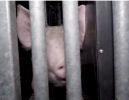
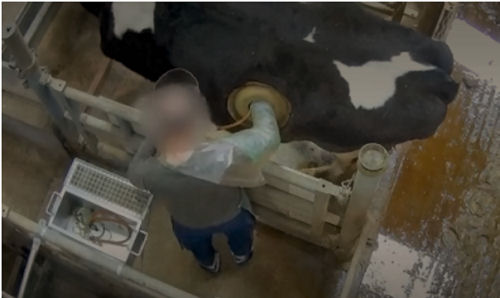

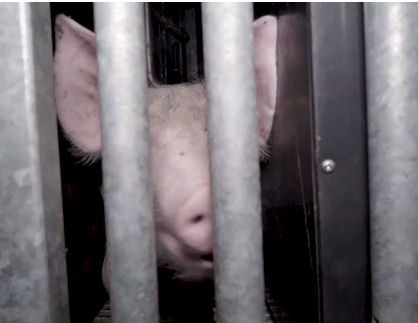
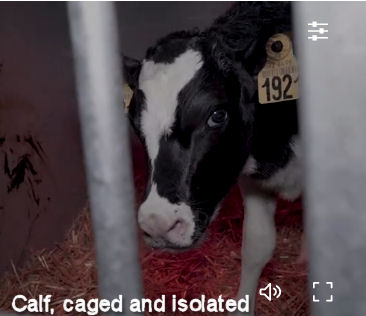
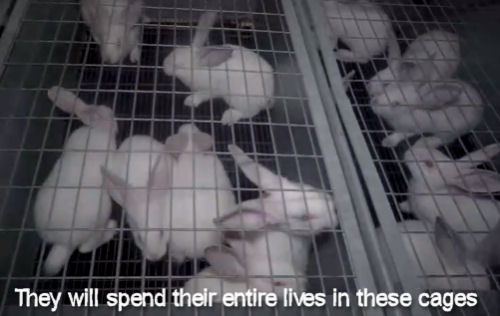

 Pontius Pilate, of course, was the judge who condemned Jesus Christ to death, according to the bible. The crime Jesus was punished for was that of leading a religion critical of the values of the Roman state. Modern authorities try to defend their right to have criminal secrets in order to justify pursecuting Assange, who has led a world-wide movement for transparent and just government. If UK or Swedish judges deliver Assange to authorities who then deliver him to the United States, they may claim that they are only doing their duty under the law, just like Judge Pontius Pilate. I am not religious, but I think this is a valuable parable for our time.
Pontius Pilate, of course, was the judge who condemned Jesus Christ to death, according to the bible. The crime Jesus was punished for was that of leading a religion critical of the values of the Roman state. Modern authorities try to defend their right to have criminal secrets in order to justify pursecuting Assange, who has led a world-wide movement for transparent and just government. If UK or Swedish judges deliver Assange to authorities who then deliver him to the United States, they may claim that they are only doing their duty under the law, just like Judge Pontius Pilate. I am not religious, but I think this is a valuable parable for our time.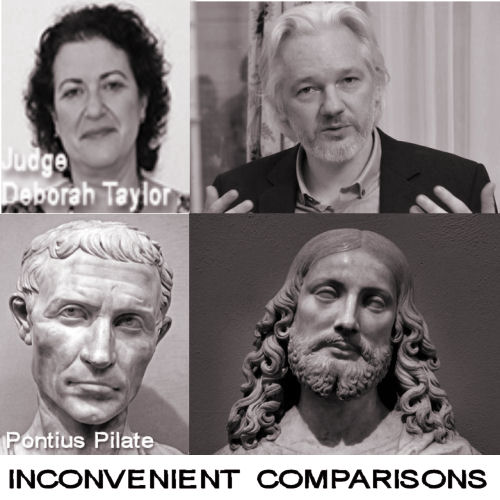
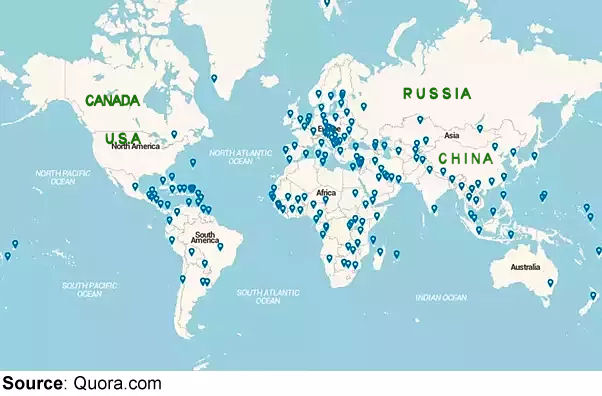
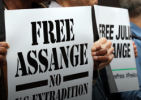 The most honest man in Britain today is Julian Assange, while the most dishonest are those who are engaged in his ongoing persecution.
The most honest man in Britain today is Julian Assange, while the most dishonest are those who are engaged in his ongoing persecution. 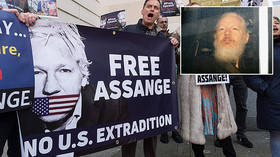
 Koala populations would once have stretched across the Australian continent, but have now shrunk to the point where we could lose them forever, according to new research that has tracked the impact of diminishing forest cover.
Koala populations would once have stretched across the Australian continent, but have now shrunk to the point where we could lose them forever, according to new research that has tracked the impact of diminishing forest cover.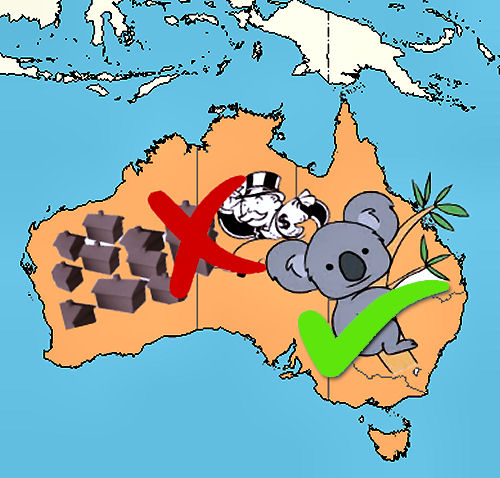
 Some of you may have heard a segment in 'Blueprint for Living' program last Saturday which dealt with water (identified as a finite resource) and in which population growth was mentioned but then went on to discuss several technical solutions and the economics of selling rural/agricultural water to cities where it could command a higher price. The issue of increased demand being within government control through limiting immigration was not discussed. As we have come to expect from the ABC, population growth was a given, an immutable fact. Accordingly I have made a complaint to the ABC as follows:
Some of you may have heard a segment in 'Blueprint for Living' program last Saturday which dealt with water (identified as a finite resource) and in which population growth was mentioned but then went on to discuss several technical solutions and the economics of selling rural/agricultural water to cities where it could command a higher price. The issue of increased demand being within government control through limiting immigration was not discussed. As we have come to expect from the ABC, population growth was a given, an immutable fact. Accordingly I have made a complaint to the ABC as follows: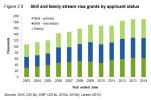 Australian employer groups frequently claim that a strong ‘skilled’ migration program is required to overcome perceived labour shortages – a view that is shared by Australia’s state and federal governments. However, the available data does not support their assertions.
Australian employer groups frequently claim that a strong ‘skilled’ migration program is required to overcome perceived labour shortages – a view that is shared by Australia’s state and federal governments. However, the available data does not support their assertions.



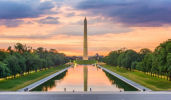 Blockchain-based social media platform will reward and return control to social media users
Blockchain-based social media platform will reward and return control to social media users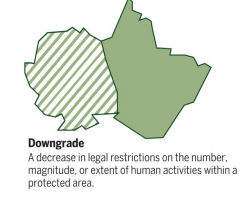 An
An 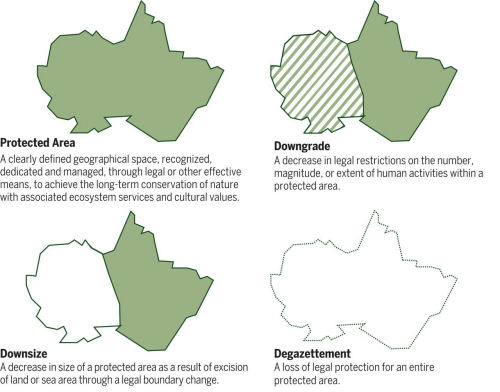
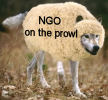 May 28, 2019 U.S. Government Seeks NGO Help For Removing Iran From Syria. The U.S.Department of State is offering a grant of $75,000,000 to non-government-organizations to help it to further meddle in Syria. The grant SFOP0005916 - Supporting Local Governance and Civil Society in Syria will go to "Nonprofits having a 501(c)(3) status with the IRS, other than institutions of higher education".
May 28, 2019 U.S. Government Seeks NGO Help For Removing Iran From Syria. The U.S.Department of State is offering a grant of $75,000,000 to non-government-organizations to help it to further meddle in Syria. The grant SFOP0005916 - Supporting Local Governance and Civil Society in Syria will go to "Nonprofits having a 501(c)(3) status with the IRS, other than institutions of higher education". Wikileaks statement: Wikileaks has grave concerns about the state of health of our publisher, Julian Assange, who has been moved to the health ward of Belmarsh prison. Mr Assange's health had already significantly deteriorated after seven years inside the Ecuadorian embassy, under conditions that were incompatible with basic human rights. The United Nations twice found him to have been arbitrarily detained and called on the United Kingdom to honor its committments under international law and free him. The UK's refusal to abide by UN rulings, and its subsequent treatment of Mr. Assange since his arrest, presents serious questions about the UK's standing as a human rights-abiding nation.
Wikileaks statement: Wikileaks has grave concerns about the state of health of our publisher, Julian Assange, who has been moved to the health ward of Belmarsh prison. Mr Assange's health had already significantly deteriorated after seven years inside the Ecuadorian embassy, under conditions that were incompatible with basic human rights. The United Nations twice found him to have been arbitrarily detained and called on the United Kingdom to honor its committments under international law and free him. The UK's refusal to abide by UN rulings, and its subsequent treatment of Mr. Assange since his arrest, presents serious questions about the UK's standing as a human rights-abiding nation. In March 2019 two law firms filed cases at the ICC against Syria’s President Bashar Al Assad and unnamed members of the Syrian government. Toby Cadman of Guernica Chambers and Rodney Dixon of Temple Garden Chambers were the protagonists in this latest attempt to criminalise the Syrian President and government.
In March 2019 two law firms filed cases at the ICC against Syria’s President Bashar Al Assad and unnamed members of the Syrian government. Toby Cadman of Guernica Chambers and Rodney Dixon of Temple Garden Chambers were the protagonists in this latest attempt to criminalise the Syrian President and government. There is an accepted truism that when it comes to politics what appears to be a conspiracy is usually just the result of poor government decisions. It is a logical conclusion given that conspiracies require clever conspirators and politicians are generally not seen as being clever. This of course is not correct, its a belief acquired because politicians are continually criticized by the media and even more so by their colleagues.
There is an accepted truism that when it comes to politics what appears to be a conspiracy is usually just the result of poor government decisions. It is a logical conclusion given that conspiracies require clever conspirators and politicians are generally not seen as being clever. This of course is not correct, its a belief acquired because politicians are continually criticized by the media and even more so by their colleagues. 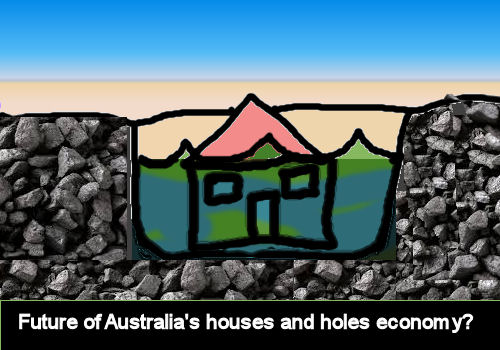
 Marine Le Pen has called on French President Emmanuel Macron to dissolve the National Assembly after her party took over the bloc led by the French president in European elections.
Marine Le Pen has called on French President Emmanuel Macron to dissolve the National Assembly after her party took over the bloc led by the French president in European elections. Results as at 10.45am Australian Eastern Standard Time (AEST)
Results as at 10.45am Australian Eastern Standard Time (AEST)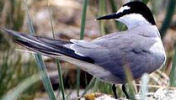 A group of birds that are not usually found in Australia attracted hundreds of birders to a relatively remote town on the north coast of NSW, resulting in a significant boost to the Australian economy.
A group of birds that are not usually found in Australia attracted hundreds of birders to a relatively remote town on the north coast of NSW, resulting in a significant boost to the Australian economy. Overdevelopment and overpopulation in Australia wreck a lot of things, but some of you might not have thought about how they wreck art. The other day a very 'successful' Australian landscape artist, who sells his paintings for several thousand each, observed that thirty years ago he used to sell his paintings for an average of $3000 each and he still does. "Problem is," he observed, "My house, which cost $60,000 then, is now worth close to a million. Paintings have not gone up.
Overdevelopment and overpopulation in Australia wreck a lot of things, but some of you might not have thought about how they wreck art. The other day a very 'successful' Australian landscape artist, who sells his paintings for several thousand each, observed that thirty years ago he used to sell his paintings for an average of $3000 each and he still does. "Problem is," he observed, "My house, which cost $60,000 then, is now worth close to a million. Paintings have not gone up. Inside are eleven responses to a questionnaire about candidates' opinions about Australia's population size. Candidates Nick Shady, Allan Doensen, Ian Dobby, Nigel Hicks want a decrease or don't want growth. One or two want to reduce immigration but have said they would prefer a bigger population. One candidate compares Australia's size to the USA and talks of diverting water to the desert for the purpose of growing the population. Some rely on the idea that better planning will facilitate a bigger population. United Australia candidates seem to have a policy of growing the population after providing infrastructure rather than before, as has been happening.
Inside are eleven responses to a questionnaire about candidates' opinions about Australia's population size. Candidates Nick Shady, Allan Doensen, Ian Dobby, Nigel Hicks want a decrease or don't want growth. One or two want to reduce immigration but have said they would prefer a bigger population. One candidate compares Australia's size to the USA and talks of diverting water to the desert for the purpose of growing the population. Some rely on the idea that better planning will facilitate a bigger population. United Australia candidates seem to have a policy of growing the population after providing infrastructure rather than before, as has been happening. 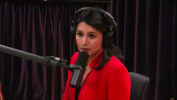 In midst of an interesting and wide-ranging
In midst of an interesting and wide-ranging 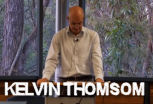 “Face up to the fact that the Liberal, Labor and Green Parties are not going to move on this issue on anything other than the point of an electoral gun, and conduct ourselves accordingly.” We have to deal with the magic pudding myth which says the world's poor can achieve western standards of living that people living in western countries will be able to more or less maintain their standards of living, that we can maintain our current rate of population growth, and we can protect the environment. It is a lie. You've heard Al Gore talking about climate change and inconvenient truth? Well, this is a convenient lie. It enables environmental groups to duck the population issue, but it is a monstrous and deceitful lie. Researchers who've looked at this say there could be a European standard of living for everyone, with sustainable use of our natural resources, provided the earth's population was no more than two billion. Kelvin also suggests that we ask political candidates if they would support Australia sponsoring a population treaty at the United Nations that committed each country to stabilising its own population. (Speech made at SPA Brisbane Seminar 27 April 2019).
“Face up to the fact that the Liberal, Labor and Green Parties are not going to move on this issue on anything other than the point of an electoral gun, and conduct ourselves accordingly.” We have to deal with the magic pudding myth which says the world's poor can achieve western standards of living that people living in western countries will be able to more or less maintain their standards of living, that we can maintain our current rate of population growth, and we can protect the environment. It is a lie. You've heard Al Gore talking about climate change and inconvenient truth? Well, this is a convenient lie. It enables environmental groups to duck the population issue, but it is a monstrous and deceitful lie. Researchers who've looked at this say there could be a European standard of living for everyone, with sustainable use of our natural resources, provided the earth's population was no more than two billion. Kelvin also suggests that we ask political candidates if they would support Australia sponsoring a population treaty at the United Nations that committed each country to stabilising its own population. (Speech made at SPA Brisbane Seminar 27 April 2019).
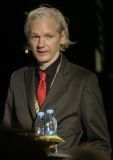

 An alarmist headline? Not really. This judgement follows from an analysis of Labor’s proposed temporary visa for parents of existing migrants, entitled, a ‘Fairer Long stay parent visa for Australia’s migrant and multicultural communities’. The proposal was announced on 22 April, 2019.
An alarmist headline? Not really. This judgement follows from an analysis of Labor’s proposed temporary visa for parents of existing migrants, entitled, a ‘Fairer Long stay parent visa for Australia’s migrant and multicultural communities’. The proposal was announced on 22 April, 2019.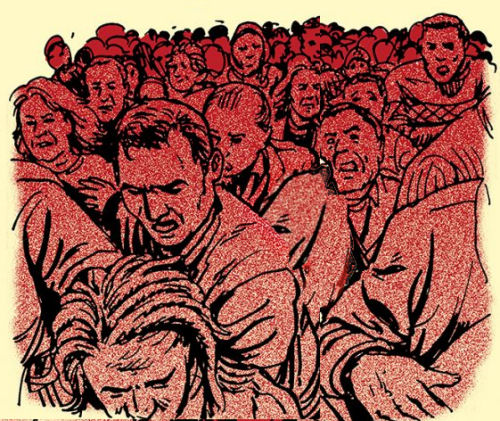
Recent comments